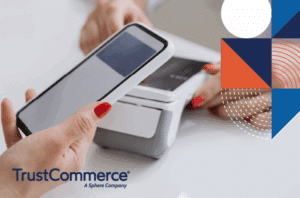As anyone in the healthcare tech space knows, the events of the pandemic significantly drove technology adoption in most industries, especially in the healthcare sector. It was inevitable—when schools, businesses and healthcare providers had to close their doors to prevent the spread of COVID-19, people used pre-existing tools to fill the gap: meetings and classes on Zoom, virtual health visits instead of in-person office visits. For the first time since internet-based telehealth was introduced, this digital disruption in healthcare caused virtual health adoption rates to grow exponentially.
According to McKinsey, telehealth services utilization was 78 times higher in April 2020 than in February 2020. At that point many experts held their breath. The healthcare industry is notoriously behind other major industries when it comes to tech adoption. Could the pandemic be the catalyst for major permanent change, or would telemedicine and other healthcare tech adoption slow down as the impact of the virus also faded?
A 2021 McKinsey analysis reports that telehealth services utilization has stabilized at 38 times higher than pre-pandemic levels. Of equal, if not greater importance is that perceptions towards virtual health care have shown significant improvement in both patients and providers. It seems that the embracing of telehealth has opened a floodgate of digital disruption in the healthcare industry, with investment in digital and virtual health increasing dramatically, with three times the level of venture capitalist investment in 2020 than in 2017. According to Peter Micca via Deloitte, this trend only increased in 2021 and shows no signs of stopping.
As hospitals and other healthcare providers invest in more technology for everything from digital practice management tools to telehealth support, to clinical support devices, it is more important than ever to adopt solutions that integrate with their existing (and growing!) technology stack. According to Forbes Council Member Kelly Feist, “Software solutions become a critical ‘glue’ to optimize the technology hospitals have today and even create new possibilities for usage.” Included in this digital soup is the need for software that enables simple and secure patient payments. That’s where TrustCommerce healthcare payment solutions comes in.
Paying for healthcare isn’t the same as paying for other services, so why trust a generic payments company when you can choose the one with healthcare expertise? TrustCommerce specializes in tech-driven healthcare payments that are simpler, more secure for patients and drive revenue, reduce risk, and create efficiencies for your practice or healthcare organization. For more than 20 years, we have the proven technology you can trust, as well as the dedicated sales, implementation, and support teams to ensure world-class service. TrustCommerce has integrations with the leading electronic health records (EHR) systems and work with an extensive network of healthcare independent software vendors (ISVs), creating a seamless experience for your staff and patients.
When considering payment solutions for your healthcare organization, it just makes sense to choose TrustCommerce. For more information, contact a TrustCommerce sales representative.






